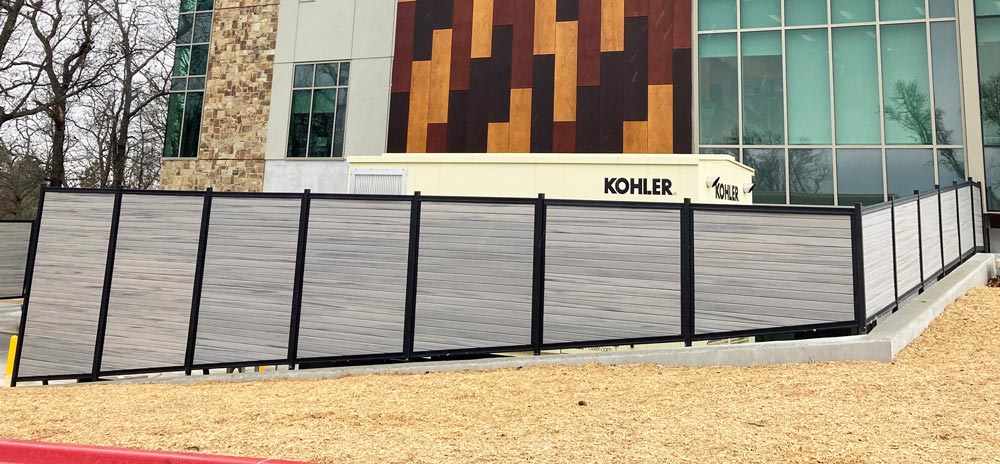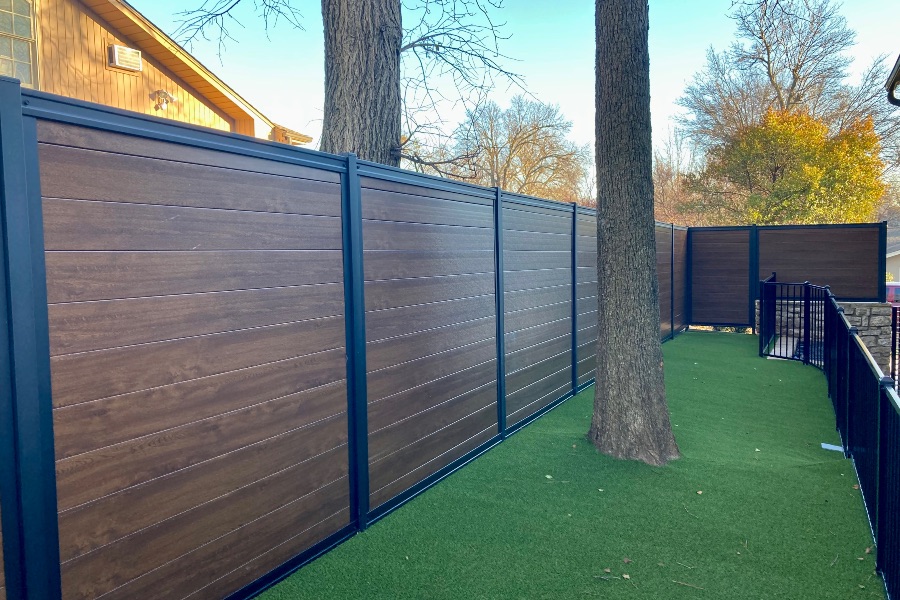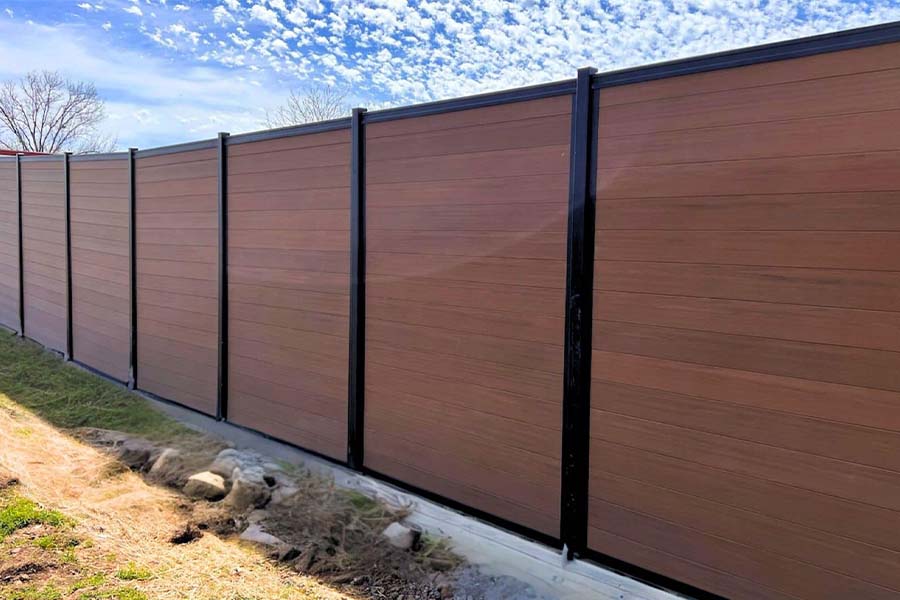All Categories
Featured
When you choose to mount a fence around your residential building, it's crucial to recognize the permit demands specific to your location. While setting up a fence can appear like a simple home improvement task, local legislations and policies should be followed to make sure the installation is lawful and compliant. Stopping working to protect the proper authorizations might lead to fines and even require you to get rid of the fence. Right here's a thorough take a look at the authorizations you might require for fence installment.
Why Do You Required an Authorization for Fencing Installment? A fencing is even more than just an obstacle in between buildings-- it can influence safety, home value, looks, and also ecological conditions. Regional federal governments require licenses to make certain that fencings fulfill certain criteria and do not cause problems for energies, neighbors, or the area in its entirety. Licenses likewise guarantee that the installation follows zoning regulations, building codes, and safety and security policies.
![]()
Types of Licenses You May Need. Structure Authorization. A structure license is among one of the most usual licenses needed for fencing installment. This license makes sure that the fence satisfies local building codes. If you're building a fence over a specific height (usually over 6 feet), you'll likely need a building license. The neighborhood building division will typically assess the site and evaluation plans to make certain the structure is stable and does not block public spaces or develop dangers.
Zoning Permit. A zoning permit guarantees your fence abides with problem, location, and height guidelines. Fencings may require to be established back a particular range from walkways, roadways, or building lines to avoid obstruction or disturbance with utilities.
HOA Authorization. If your property is part of a house owners organization (HOA), you might require to look for approval prior to mounting a fencing. HOAs generally have guidelines that govern the aesthetics and framework of fences to guarantee they agree with the community. You might require to send your strategies for approval, and the HOA may limit fencing height, style, or material.
Specialty Permits. In some locations, there might be extra authorizations needed for details circumstances. For example, if your fence is near a safeguarded ecological location or situated in a disaster area, you may need to obtain specialty licenses associated to ecological influence. If the fence is in a location with below ground utilities, you might need to get clearance to stay clear of destructive pipes or wires.
![]()
Easement or Energy Firm Permission. Before setting up a fence, it's important to examine whether the property consists of an easement, such as an energy easement, which could affect where you can put your fence. Easements are areas of land assigned for private or public utilities, and you might need permission from the utility company or various other authority to build within this area.
Just How to Find Out What Permits You Need. To make sure that you're following all the necessary guidelines, right here's exactly how you can figure out the particular permits required for your fence installation:
![]()
Browse Through Your City Government Workplace: The very first action is to get in touch with your regional structure or zoning division. Numerous cities and regions have standards readily available online that define what sorts of permits are needed for fence installment. Otherwise, calling or going to the workplace in individual can assist clarify the process. Inspect Your City's Website: Many municipalities provide details regarding fence setups and the licenses needed via their official web sites. Some sites even permit you to send applications on-line. Speak With a Fence Setup Specialist: If you're not exactly sure regarding local laws, a specialist fencing contractor can help. They are acquainted with the allowing process and can direct you with the actions. The Effects of Not Getting a License. Failing to protect the needed permits prior to installing a fencing can lead to substantial repercussions. You might be fined or needed to remove the fencing entirely. In addition, if you determine to offer your residential property in the future, the lack of an authorization can hinder prospective purchasers, as they may see it as a sign that the residential or commercial property is not certified with local regulations. Ensuring that you have the proper authorizations will save you time, money, and headaches in the lengthy run.
Conclusion. Mounting a fence around your house can include both safety and visual appeal, but it is very important to ensure you're adhering to the lawful action in the procedure. Looking into the particular license demands for your location, consisting of building authorizations, zoning policies, HOA approval, and energy permissions, will certainly aid ensure your fencing installation goes efficiently. Taking the time to understand these demands now can conserve you from costly mistakes and possible legal concerns down the line.
Why Do You Required an Authorization for Fencing Installment? A fencing is even more than just an obstacle in between buildings-- it can influence safety, home value, looks, and also ecological conditions. Regional federal governments require licenses to make certain that fencings fulfill certain criteria and do not cause problems for energies, neighbors, or the area in its entirety. Licenses likewise guarantee that the installation follows zoning regulations, building codes, and safety and security policies.

Types of Licenses You May Need. Structure Authorization. A structure license is among one of the most usual licenses needed for fencing installment. This license makes sure that the fence satisfies local building codes. If you're building a fence over a specific height (usually over 6 feet), you'll likely need a building license. The neighborhood building division will typically assess the site and evaluation plans to make certain the structure is stable and does not block public spaces or develop dangers.
Zoning Permit. A zoning permit guarantees your fence abides with problem, location, and height guidelines. Fencings may require to be established back a particular range from walkways, roadways, or building lines to avoid obstruction or disturbance with utilities.
HOA Authorization. If your property is part of a house owners organization (HOA), you might require to look for approval prior to mounting a fencing. HOAs generally have guidelines that govern the aesthetics and framework of fences to guarantee they agree with the community. You might require to send your strategies for approval, and the HOA may limit fencing height, style, or material.
Specialty Permits. In some locations, there might be extra authorizations needed for details circumstances. For example, if your fence is near a safeguarded ecological location or situated in a disaster area, you may need to obtain specialty licenses associated to ecological influence. If the fence is in a location with below ground utilities, you might need to get clearance to stay clear of destructive pipes or wires.

Easement or Energy Firm Permission. Before setting up a fence, it's important to examine whether the property consists of an easement, such as an energy easement, which could affect where you can put your fence. Easements are areas of land assigned for private or public utilities, and you might need permission from the utility company or various other authority to build within this area.
Just How to Find Out What Permits You Need. To make sure that you're following all the necessary guidelines, right here's exactly how you can figure out the particular permits required for your fence installation:

Browse Through Your City Government Workplace: The very first action is to get in touch with your regional structure or zoning division. Numerous cities and regions have standards readily available online that define what sorts of permits are needed for fence installment. Otherwise, calling or going to the workplace in individual can assist clarify the process. Inspect Your City's Website: Many municipalities provide details regarding fence setups and the licenses needed via their official web sites. Some sites even permit you to send applications on-line. Speak With a Fence Setup Specialist: If you're not exactly sure regarding local laws, a specialist fencing contractor can help. They are acquainted with the allowing process and can direct you with the actions. The Effects of Not Getting a License. Failing to protect the needed permits prior to installing a fencing can lead to substantial repercussions. You might be fined or needed to remove the fencing entirely. In addition, if you determine to offer your residential property in the future, the lack of an authorization can hinder prospective purchasers, as they may see it as a sign that the residential or commercial property is not certified with local regulations. Ensuring that you have the proper authorizations will save you time, money, and headaches in the lengthy run.
Conclusion. Mounting a fence around your house can include both safety and visual appeal, but it is very important to ensure you're adhering to the lawful action in the procedure. Looking into the particular license demands for your location, consisting of building authorizations, zoning policies, HOA approval, and energy permissions, will certainly aid ensure your fencing installation goes efficiently. Taking the time to understand these demands now can conserve you from costly mistakes and possible legal concerns down the line.
Latest Posts
Energy Efficiency Metal Roofs: How They Can Save You Money
Published Jan 19, 25
2 min read
What Are the A Lot Of Popular Furniture Styles for Modern Living Areas?
Published Jan 19, 25
0 min read
How Can Customers Tailor Furnishings to Suit Their Home Design?
Published Jan 19, 25
0 min read
More
Latest Posts
Energy Efficiency Metal Roofs: How They Can Save You Money
Published Jan 19, 25
2 min read
What Are the A Lot Of Popular Furniture Styles for Modern Living Areas?
Published Jan 19, 25
0 min read
How Can Customers Tailor Furnishings to Suit Their Home Design?
Published Jan 19, 25
0 min read